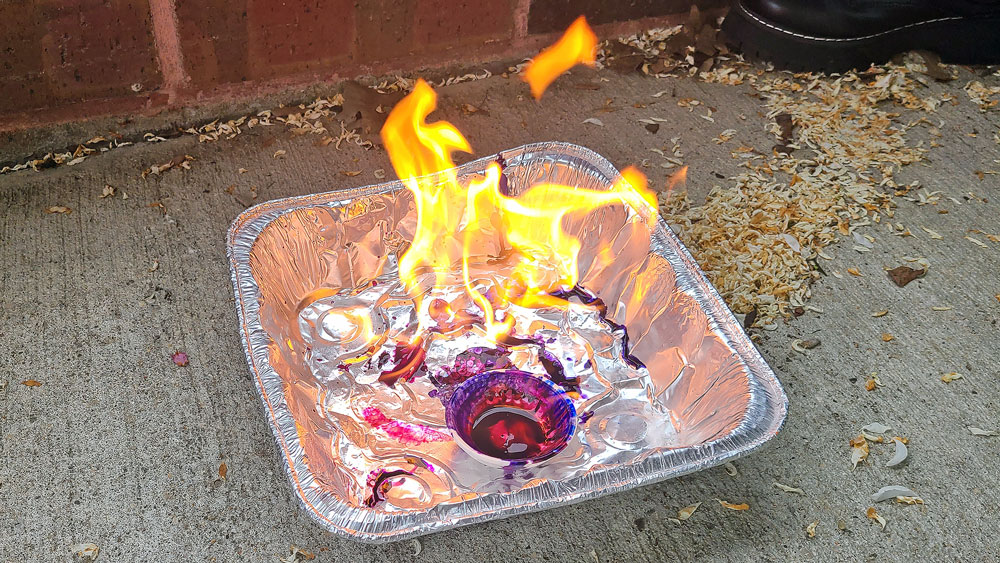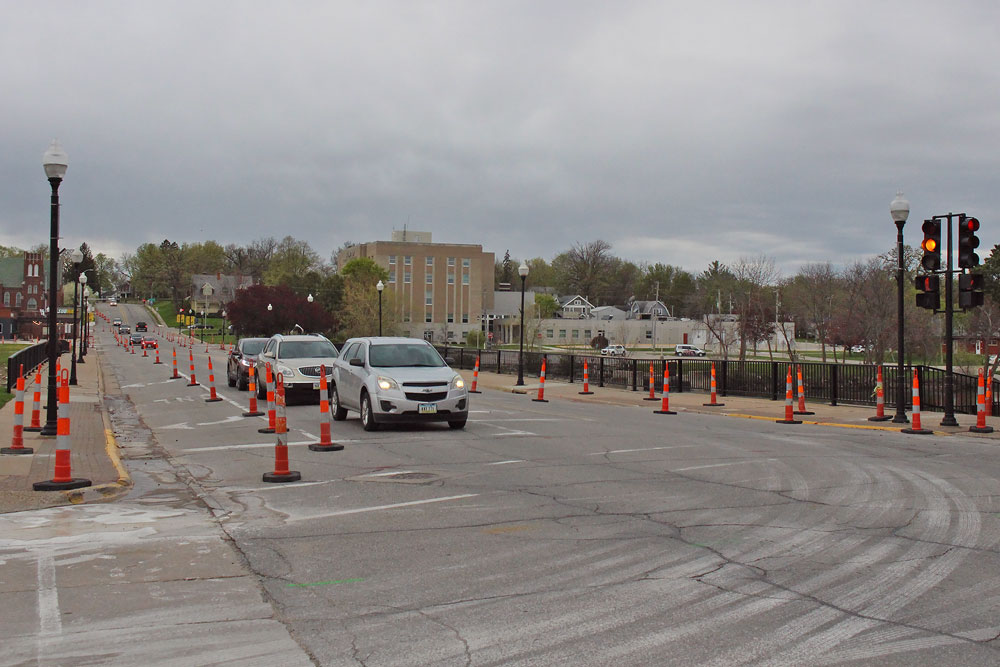Floyd County pipeline opponent questions definition of liquid

By Jared Strong, Iowa Capital Dispatch
An Iowa company should not get permit for a hazardous liquid pipeline because the carbon dioxide it wants to transport isn’t a liquid, opponents of the project say.
The carbon dioxide that would be transported by proposed pipelines from ethanol plants in Iowa would exist as a “supercritical fluid” — a phase that is somewhere between a gas and a liquid. Thus, it does not qualify for a hazardous liquid pipeline permit, opponents of the projects argue.
Summit Carbon Solutions wants to lay more than 700 miles of pipe in Iowa to move the greenhouse gas to North Dakota for underground sequestration. The company says state lawmakers meant to include the supercritical status when they sought to regulate the transportation of “liquefied carbon dioxide.”
State law does not explicitly define what that phrase means.
The dispute is part of a last-minute gambit by pipeline opponents to halt or delay a permit for Summit’s project, which is set for a final evidentiary hearing with the Iowa Utilities Board next month. The company’s permit process started nearly two years ago.
There are pending motions to delay the hearing and to dismiss the company’s permit petition that were filed by Floyd County landowner George Cummins and the Sierra Club of Iowa. Several counties have joined the motions.
“And now, virtually on the eve of the hearings on Summit’s petition, George Cummins asks the IUB to dismiss the petition because, in his view (really, his counsel’s view), the IUB lacks jurisdiction over pipelines transporting ‘supercritical’ carbon dioxide,” Summit’s attorneys wrote in a response last week to the dismissal motion. They added: “That is wrong.”
Cummins’ attorney, Brian Jorde, who is representing dozens of landowners in several states who oppose the proposed pipeline, made a similar argument about “supercritical” versus “liquid” in a Hardin County court case. In that litigation, Summit sought a court order allowing it to survey private property.
A district court judge, who last week granted that request, dismissed the “supercritical” argument as “frivolous” and “nonsensical.”
“It is clear from both Iowa law and federal law and regulations that Summit’s proposed pipeline falls squarely within the definitions of hazardous liquid pipelines,” District Judge Amy Moore wrote.
‘It’s in between’
Carbon dioxide can reach a supercritical fluid state when it is pressurized to more than 1,070 pounds per square inch (psi) at a temperature of at least 88 degrees, according to the federal Pipeline and Hazardous Materials Safety Administration, which regulates the construction and operation of the pipelines.
In that phase, it has a density that is similar to a liquid but moves like a gas.
“It’s not gas, it’s not liquid, it’s in between,” Linda Daugherty, a PHMSA administrator, told state lawmakers in March. “I kind of think of it like steam.”
The supercritical phase is the predominant mode of operation for existing carbon dioxide pipelines in other parts of the country, Daugherty said.
Summit’s pipeline network is expected to operate at pressures that range from about 1,200 to 2,150 psi.
“At the temperatures and pressures at which Summit proposes to transport CO2, the CO2 will behave much more like a liquid such that in a transparent pipe, the CO2 would look like flowing water or alcohol,” said John Godfrey, a pipeline consultant in Oklahoma who provided Summit a written statement in support of the company.
He noted that PHMSA’s oversight of carbon dioxide pipelines stems from the Hazardous Liquid Pipeline Safety Act of 1979.
Still, Cummins argues that there is a clear distinction between supercritical carbon dioxide and the “liquefied carbon dioxide” noted in state law, and as such the IUB doesn’t have jurisdiction over Summit’s project.
“If the Iowa Legislature intended ‘supercritical’ carbon dioxide be included … then it would have added the word ‘supercritical’ to the definition of ‘hazardous liquid,’ ” Cummins’ motion for dismissal says. “The legislature did not do so.”
The judge in the Hardin County case said a purpose of the law was to protect landowners from environmental and economic damage that might arise from construction and operation of a hazardous liquid pipeline.
“Given the purpose of (the law), it would be nonsensical to hold that companies transporting carbon dioxide through pipelines at higher temperatures and higher pressures than carbon dioxide in its liquid phase are exempt from its requirements,” Judge Moore wrote. “It is therefore clear that Summit’s proposed pipeline is the exact type of hazardous liquid pipeline that the Iowa Legislature intended to be governed by (the law), regardless of the fact that the carbon dioxide being transported may not always meet a scientifically precise definition of ‘liquefied’ at every moment in the transportation process.”
Permit process proceeds
The IUB has yet to issue an order in response to the motions to delay Summit’s evidentiary hearing or to dismiss the petition entirely.
The hearing is set to start Aug. 22 in Fort Dodge and has the potential to go for months. Pipeline opponents have said the schedule doesn’t allow landowners who are subject to eminent domain requests enough time to prepare.
The IUB has indicated that those eminent domain requests will be considered at the start of the hearing, whereas they have been traditionally considered at the end. There are more than 1,000 parcels subject to the requests.
A growing number of state legislators have criticized the process for being too swift.
However, IUB Chair Erik Helland said last week that there is no need to hold another scheduling conference, which the board uses to gain input about when deadlines and hearings should be set. His comments cast doubt on the possibility of a delay.
— Iowa Capital Dispatch is part of States Newsroom, a network of news bureaus supported by grants and a coalition of donors as a 501c(3) public charity. Iowa Capital Dispatch maintains editorial independence. Contact Editor Kathie Obradovich for questions: info@iowacapitaldispatch.com. Follow Iowa Capital Dispatch on Facebook and Twitter.









Social Share